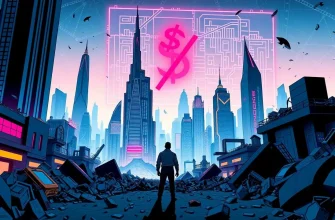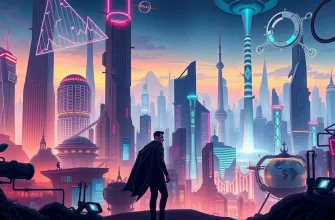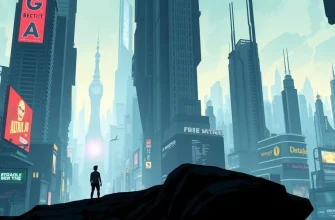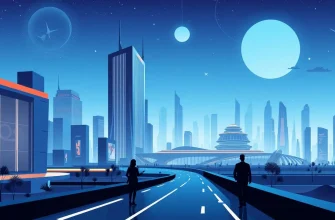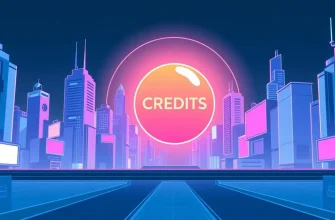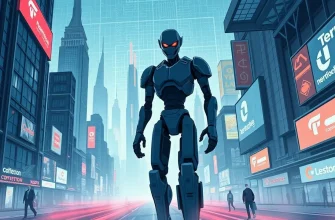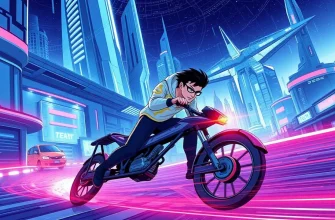Dive into the thrilling universe where business and science fiction collide. These films explore the dynamics of power, innovation, and the ethical dilemmas faced by those at the helm of colossal business empires. Whether it's a dystopian future where corporations rule or a world where technology shapes the very fabric of society, these movies offer a captivating look at the intersection of commerce and futuristic visions. Here are ten films that will take you on a journey through the cosmos of corporate ambition and technological marvels.
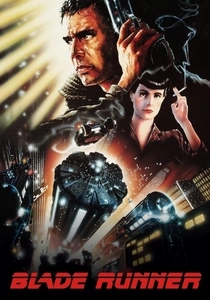
Blade Runner (1982)
Description: Set in a dystopian future where the Tyrell Corporation manufactures bioengineered beings called replicants, "Blade Runner" delves into themes of identity, humanity, and corporate control over life itself. The film's portrayal of a future Los Angeles dominated by corporate skyscrapers and neon lights is iconic.
Fact: The film was initially a box office disappointment but has since become a cult classic. Ridley Scott's director's cut was released in 1992, altering the film's ending and removing the voice-over narration.
 Watch Now
Watch Now 
Brazil (1985)
Description: This dark comedy-dystopia features a bureaucratic nightmare where a central corporation, the Ministry of Information, controls every aspect of life, including dreams and aspirations.
Fact: The film's title refers to the song "Aquarela do Brasil," which plays during a dream sequence, symbolizing escapism.
 Watch Now
Watch Now 
Robocop (1987)
Description: In a future Detroit where crime is rampant, the Omni Consumer Products (OCP) corporation seeks to privatize the police force. After a police officer is brutally killed, he is transformed into a cyborg law enforcer, exploring themes of corporate greed and the loss of humanity.
Fact: The film was originally conceived as a serious drama, but director Paul Verhoeven added dark humor, making it a satirical take on corporate America.
 Watch Now
Watch Now 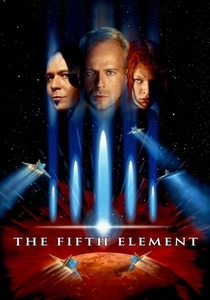
The Fifth Element (1997)
Description: While not explicitly about a business empire, the film features Zorg Industries, a company that manufactures weapons and technology, representing corporate greed and the commodification of war.
Fact: The film's futuristic setting was inspired by the art deco movement, giving it a unique visual style.
 Watch Now
Watch Now 
Gattaca (1997)
Description: In a future where genetic engineering determines one's social status, the Gattaca Aerospace Corporation represents the pinnacle of corporate power, controlling access to space travel based on genetic perfection.
Fact: The film's title is derived from the four nitrogen bases of DNA: guanine, adenine, thymine, and cytosine.
 Watch Now
Watch Now 
The Matrix (1999)
Description: While not directly about a business empire, "The Matrix" features the Machines, an AI collective that controls humanity through a virtual reality to harvest their bioelectric energy. This can be seen as a metaphor for corporate control over individuals' lives.
Fact: The Wachowskis developed the concept of bullet time, a visual effect that became iconic in action cinema.
 Watch Now
Watch Now 
The Island (2005)
Description: In a seemingly utopian facility, residents are told they are survivors of a global contamination. However, they are clones, bred by a corporation to provide organs for their wealthy sponsors, highlighting the commodification of life.
Fact: The film features a futuristic setting with a retro-futuristic aesthetic, reminiscent of the 1950s vision of the future.
 Watch Now
Watch Now 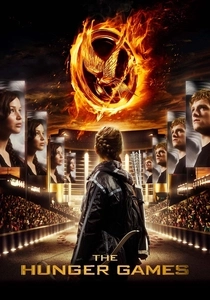
The Hunger Games (2012)
Description: In a post-apocalyptic world, the Capitol, a city of extreme wealth and power, controls the districts through the Hunger Games, a televised event where children fight to the death. This can be seen as a metaphor for corporate control over the masses.
Fact: The film was a massive commercial success, spawning a franchise that explores themes of resistance against oppressive systems.
 Watch Now
Watch Now 
Elysium (2013)
Description: In this film, Earth is a dystopian wasteland, while the wealthy live on a luxurious space station called Elysium. The Armadyne Corporation, which built Elysium, represents the ultimate business empire controlling access to life-saving technology.
Fact: The film's production design was inspired by the works of Syd Mead, known for his futuristic designs in films like "Blade Runner."
 Watch Now
Watch Now 
In Time (2011)
Description: Time is literally money in this film, where people stop aging at 25 but must work to buy more time to live. The Timekeepers, a powerful corporation, control the time economy, creating a stark divide between the rich and the poor.
Fact: The film's concept was inspired by the idea of time as a currency, exploring themes of economic inequality.
 Watch Now
Watch Now 

